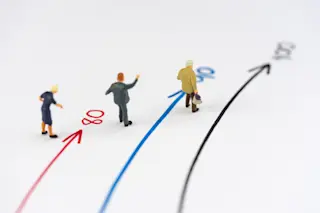Across cultures and time, humans, like most living things, have exhibited a voracious drive to survive. Evolutionarily, and generationally, this instinct is vital to perpetuating any species. But Homo sapiens, specifically, have altered the number of days that an individual can expect to live on this Earth in extraordinary ways — and we’ve done it in a very short timeframe.
Human life expectancy has made steady gains over the past 200 years at a pace and scale never before seen in history — particularly in the most advanced nations. In fact, average life expectancy has doubled in many countries since the early 1800s, when the global average was likely around 40 years. As of 2019, that average has shot to 73.4 years, according to the World Health Organization (WHO).
But this line of progress for humanity has also exposed significant inequalities in regional health around the globe. In 1950, for ...














